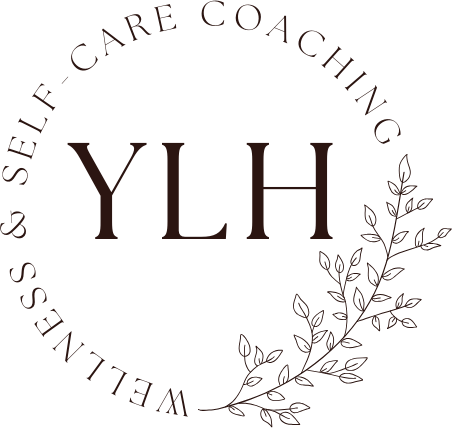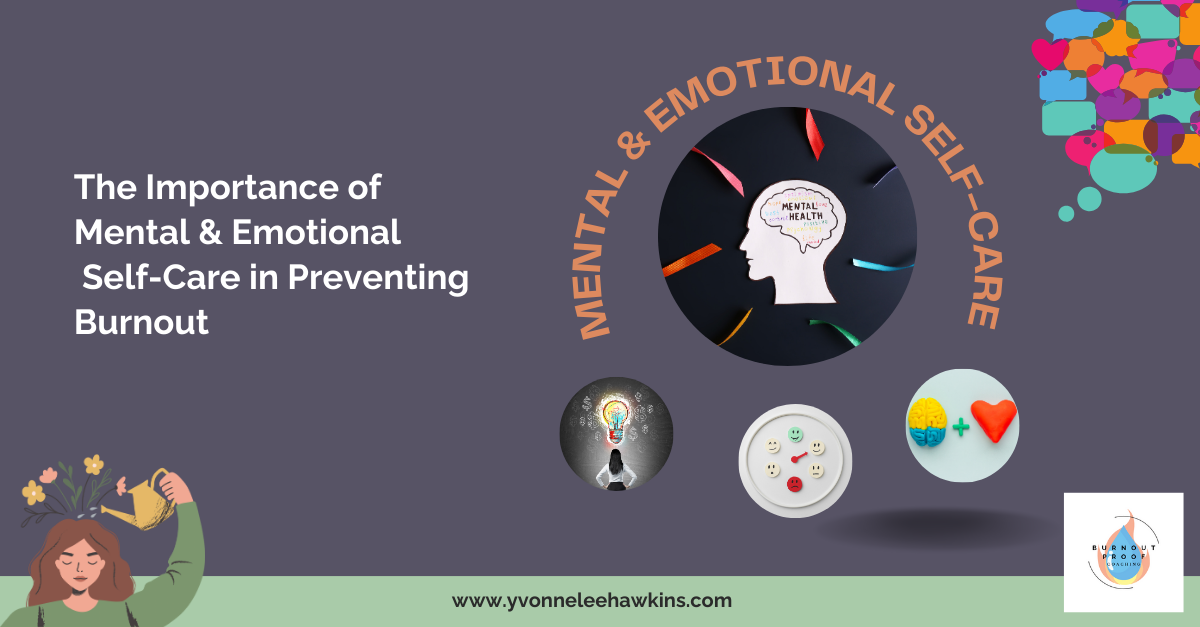When we hear the word “feelings,” it’s easy to tune out. But our emotions are actually critical data points that help us adapt and survive our environment. For example, chronic feelings of stress or frustration at work may indicate burnout—a widespread issue affecting around 77% of workers, according to a recent Deloitte study. This type of burnout leaves us exhausted, drained, and unmotivated, making it tough to perform well at work and enjoy life outside of it.
Taking time to tune into our thoughts and feelings (mental and emotional self-care) is as important as physical self-care when it comes to managing stress and avoiding burnout. Regularly caring for your mind and emotions can boost resilience, leaving you more balanced and ready to tackle life’s challenges.
What Is Mental and Emotional (ME) Self-Care?
It means intentionally focusing on your mindset, emotions, and general mental health. Just as physical self-care involves actions like eating well and exercising, ME self-care involves practices that help manage stress, process emotions, and strengthen mental resilience.
– Mental Self-Care includes activities like choosing a positive mindset, solving problems calmly, meditating, or learning something new.
– Emotional Self-Care involves identifying and understanding feelings, expressing them healthily, and connecting with others.
Together, these practices help us better understand ourselves and manage stress. Practiced consistently, ME self-care can keep burnout at bay, helping you stay focused, calm, and balanced.
Why ME Self-Care Matters
For one, it increases your resilience. When your ME health is good, you’re better able to handle stressful situations without getting overwhelmed. Have you ever witnessed an executive throw a temper tantrum? It’s not a pretty sight and leaves the team questioning the leader’s abilities. By becoming more resilient, it helps you prevent violent and emotional outbursts, and bounce back from challenges faster, staying more productive. Not to mention more respected.
It reduces your stress and anxiety. By practicing ME self-care regularly, you can lower your daily stress and anxiety levels, allowing yourself to manage your emotions and feel more grounded. No more road rage, or getting upset over the slightest inconvenience.
It helps you identify, process, and express your feelings in a productive and healthy way. When you’re aware of your emotions, you can make better decisions and avoid letting stress build up to the point of burnout. Taking time to care for your mental and emotional state also helps you improve focus and clarity. It enhances concentration and decision-making, making you a more decisive leader. By keeping your mind healthy, you can stay focused and make better choices, both in work and life, making you right more often.
Best of all, taking care of your mental and emotional health promotes happiness and well-being. Who doesn’t want that? Taking care of yourself allows you to experience more positive emotions, like gratitude and being present, leading to greater life satisfaction and happiness overall. No longer will you be at your partner’s event, but mentally stressing about all the things at work. You’ll more easily create and maintain boundaries.
By incorporating self-care practices into your daily routine, you can avoid burnout, stay energized, and maintain a more positive outlook on life.
How to Practice Mental and Emotional Self-Care
ME self-care doesn’t need to be complex; it simply requires paying attention to how you feel. Here are some simple but effective ways to get started:
1. Mindfulness Meditation
Meditation is a powerful tool for calming the mind, reducing stress, and becoming more aware of thoughts and emotions. Practicing mindfulness involves focusing on the present moment without judgment, even if only for a few minutes each day.
To start, find a quiet space, close your eyes, and take a few deep breaths. Notice how your body feels, focus on your breathing, and gently return your mind to your breath whenever it wanders. Apps like Insight Timer or Headspace can guide you through meditation if you’re new to it.
2. Journaling
Writing down your thoughts and feelings is a great way to process emotions, clear your mind, and reduce stress. Journaling helps you sort out what’s on your mind by putting your thoughts on paper, making them easier to understand and manage.
Start by writing for a few minutes each day, even if it’s just about something on your mind or responding to a prompt like, “What’s one thing I’m grateful for?” There’s no wrong way to journal; it’s simply about getting your thoughts out of your head and onto the page.
3. Practice Self-Compassion
Self-compassion is about treating yourself with kindness, just as you would a close friend. Many of us are harsher on ourselves than we realize, which can contribute to feelings of inadequacy and burnout. Practicing self-compassion can reduce stress and boost your self-image.
When you catch yourself being overly critical, try to reframe your thoughts. Ask yourself, “What advice would I give to a friend in this situation?” It’s okay to make mistakes—seeing failures as part of the growth process can help you move forward with less stress.
4. Set Boundaries
Boundaries are essential for your mental and emotional well-being. Without clear boundaries, it’s easy to take on too much, which can lead to burnout. Setting boundaries means knowing your limits and communicating them to others.
For example, if work emails after hours are stressing you out, let colleagues know your availability. In your personal life, it’s also okay to limit support you give if it’s leaving you feeling drained. Start by saying “no” to commitments that feel overwhelming or unnecessary, making room for things that truly matter.
5. Connect with Loved Ones
Connecting with people who make you feel valued, understood, and happy is one of the best ways to nurture your emotional health. Spending time with friends or family who appreciate you can help you release stress and process emotions. A strong support system is invaluable, especially during tough times.
If family relationships are challenging, lean on friends or what’s known as a “chosen family”—the people you trust and love like family. Spending time with those who uplift you provides a sense of belonging and joy, which is essential for emotional self-care.
Five Actionable Things You Can Do Today to Support Your Mental and Emotional Health
1. Take Five Minutes to Breathe: Spend five minutes practicing mindful breathing. Sit comfortably, take slow, deep breaths, and focus on how it feels. This simple exercise can help calm your mind and reduce stress.
2. Write Down Three Things You’re Grateful For: Grab a pen and write down three things you appreciate in your life. This can be anything from a supportive friend to a favorite meal. Make it specific. Instead of writing I’m grateful for my partner, write “I’m grateful my partner surprised me with lunch today.” Practicing gratitude is a great way to shift your focus to the things that are positive in your life.
3. Say No: This is my absolute favorite. Look at your schedule and pick one task or commitment that isn’t essential or that you don’t really want to do. Politely decline or reschedule it to free up some time for yourself. Embrace your inner toddler and say No to as many things as you can until you feel like you have space to say yes again.
4. Text or Call a Friend: Take a few minutes to check in with a friend or loved one. A short chat with someone you care about can boost your mood and make you feel connected. Sharing a meme counts. I recently learned that there is a term for sharing memes with loved ones. It’s called “pebbling.” It is a small show of affection by sharing something that makes you smile.
5. Take a 10-Minute Break: Stand up, stretch, and walk around for 10 minutes. Use this time to relax and refresh your mind, allowing you to return to your tasks with more energy. If you get tired or grumpy, there is nothing more magical than a walk. I strongly believe movement is medicine. Take it as needed, and more than you think.
Start small with the actionable tips above, and remember that self-care is a journey. Practicing these habits regularly will build resilience, allowing you to manage stress more effectively and keep burnout at bay. Make time to care for yourself today—your mental and emotional well-being are worth it. You are worth it!
Let me know if this topic adds value for you. Please like and subscribe if you want more topics like this, or comment or DM me. I always love suggestions and feedback!
And if you are too burned out and overwhelmed to even begin to use any of these strategies it might be time to get some help. Find a coach, therapist, or doctor who can help you reverse out of the physical, mental, and emotional symptoms of burnout so you can get back to living in healthy balance.
Remember, Self-care isn’t selfish…it’s required!
Yvonne Lee-Hawkins, IPHM, is a holistic wellness coach, stress strategist, and writer, who spent 20 years in corporate and leadership functions. When she is not working, she loves to go on nature adventures with her family, in the Pacific Northwest where they call home. You can find out more on her website, or follow her on LinkedIn, Medium, or Instagram.
If you want some help with Self-care, Burnout recovery, or general wellness, schedule a call here.

